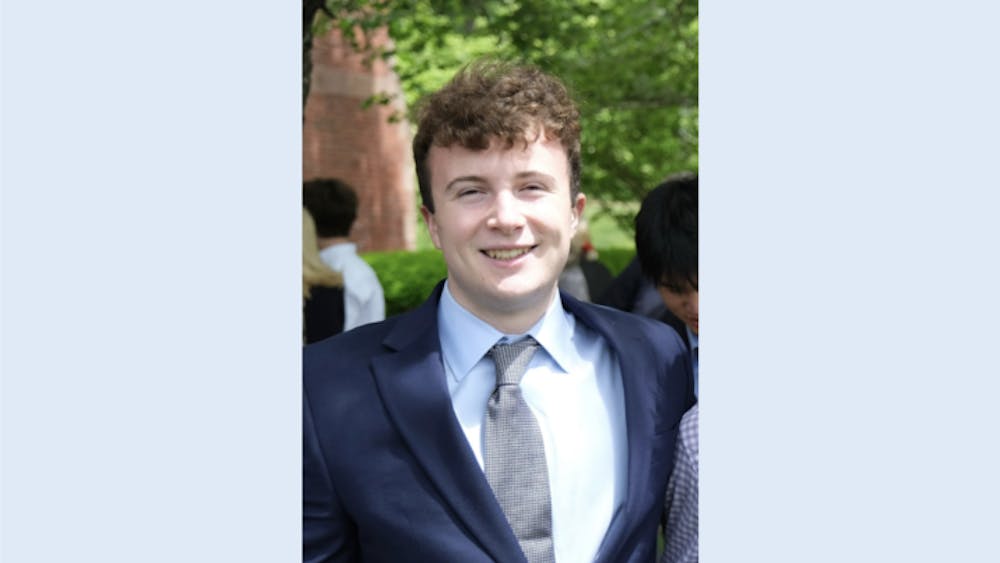At the tailend of a Monday roundtable, Prof. Magnus Fiskesjö, anthropology, asked the audience a question:
“If our business school dean goes to China, should they just be able to schmooze around with all the companies and officials without ever mentioning that there are a million [Chinese] people in camps?”
“No,” Fiskesjö answered. “I think as Cornellians, if we are going to have those relations [with China,] business school or whatever, we should not be silent on these things.”
When the average Cornellian is asked to name the victims of an ongoing genocide, they might think of the Rohingya in Myanmar. Or maybe the Yazidis in Iraq. Not many will name the Muslim Uyghurs in Xinjiang, a north-west Chinese territory bordering Kazakhstan.
But three Cornell professors are intent on changing that. They co-hosted a panel discussion on Monday to explain that a cultural “genocide” is taking place in the remote Chinese autonomous region, wiping out perhaps not only human lives, but also the very culture of the Uyghurs.
The lecture focused on the mass “re-education” camps in Xinjiang, where more than one million Uyghurs are held against their will to undergo political indoctrination, according to the Human Rights Watch. The detainees are forbidden from using Islamic greetings and are forced to learn Mandarin Chinese and sing propaganda songs. If they refuse to abide by camp rules, they are forced into solitary confinement or denied food.
The Chinese government argues that these sorts of measures are necessary to starve off increasing religious extremist violence in the area, a claim contested by Uyghur groups and human rights advocates, according to The New York Times.
However, Prof. Jeremy Wallace, government, suspects ulterior motives drive the Chinese government’s Uyghurs policy, situating it as part of a larger crackdown on “independent civil society” as China’s government struggles to adapt a new era of low-GDP growth.
“The political and economic engine that has driven China’s growth for the last three and a half decades is stuttering,” Wallace said. “This is an attempt in part to fix this engine of growth. But I think it is mostly a hedge, an attempt to create a new political story justifying the regime. And this regime is about control, and about enemies, about purities. ... There is a major push, I think, of creating enemies of those who do not get on board with this vision.”
Prof. John Weiss, history, argued that these sorts of acts of repression by the Chinese state classify as a cultural “genocide” — even if the death tolls are comparatively low, there still exists a drive to destroy a cultural identity, he argued.
“The discussions of genocide has been putting an emphasis upon killing — it’s the physical destruction that matters,” Weiss argued. “I think we can go beyond that in our notion of what genocide is and we can perhaps use a different term. ... You can lose your identity, you can lose your dignity — and is that not much superior to dying?”
The 1948 Genocide Convention says that “genocide means any of the following acts committed with intent to destroy, in whole or in part, a national, ethnical, racial or religious group,” and then goes on to detail actions not limited to killing. However, the same document contends that “cultural destruction does not suffice” the deployment of the loaded term.
Fiskesjö channelled the insights of Prof. Rian Thum, history, Loyola University, to predict a bleak future for Xinjiang, where undisputable acts of genocide is taking place.
“[Thum has] clearly written about how there’s no clear end in sight ... There’s officials talking about these people in terms that begin to approach a genocidal attitude,” citing opinions such as “Let’s get rid of them if we can’t change them, transform them, break their identity and force them to change, maybe we should get rid of them.”
But some Chinese people are speaking up against their government’s Uyghur policies, and we should as well, Fiskesjö said.
“They are also trying to silence journalists, and anyone, like us here, who are trying to talk about this. We would all be shut down if this was in China ... Let’s not be silent,” Fiskesjö said.










